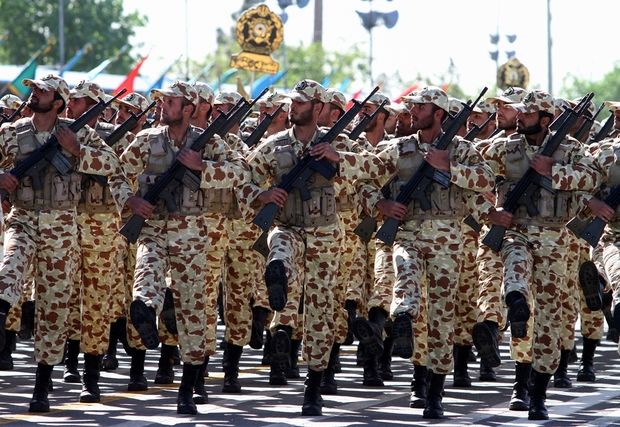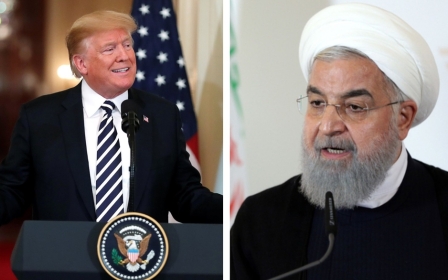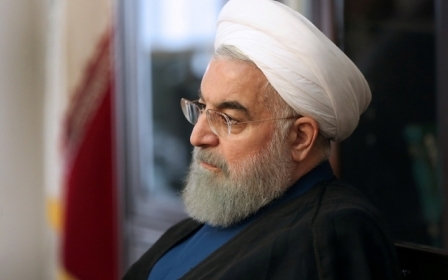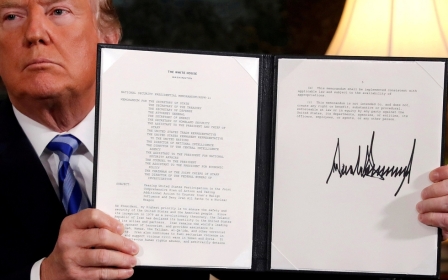Iran preparing major military exercise, US officials say

Iran is preparing to carry out a major exercise in the Gulf in the coming days, apparently moving up the timing of annual drills amid heightened tensions with Washington, US officials told Reuters on Wednesday.
Iran has repeatedly expressed dissatisfaction over US President Donald Trump's decision to pull out of an international nuclear deal and reinstate sanctions. Iran has said it will not accept any attempts that aim to halt the country’s oil exports.
The US military's Central Command told Reuters that it has seen an increase in Iranian military activity, including in the Strait of Hormuz, a strategic waterway for oil shipments.
"We are aware of the increase in Iranian naval operations within the Arabian Gulf, Strait of Hormuz and Gulf of Oman," said Navy Captain Bill Urban, the chief spokesman at Central Command, which oversees US forces in the Middle East.
"We are monitoring it closely, and will continue to work with our partners to ensure freedom of navigation and free flow of commerce in international waterways," Urban added.
Urban did not provide further information or comment on questions about the expected Iranian drills.
But US officials, speaking to Reuters on condition of anonymity, said Iran's Revolutionary Guards appear to have prepared more than 100 vessels for the exercises. Hundreds of ground forces may also be involved.
They said the drills may start within 48 hours, but added that they are unsure of when the exercise will actually begin.
Details of the Iranian preparations were first reported by CNN.
US officials said the timing of the drills appear designed to send a message to Washington, which is intensifying its economic and diplomatic pressure on Tehran, but so far stopping short of using the US military to more aggressively counter Iran and its proxies.
Trump's policies are already putting significant pressure on the Iranian economy, although US intelligence suggests they may ultimately rally Iranians against the United States and strengthen Iran's hardline rulers, officials say.
On Monday, Trump said he’s willing to meet with Iran without any preconditions, which prompted an aide to Iranian leader Hassan Rouhani to quip back that the US should return to the nuclear deal.
"Respecting the Iranian nation's rights, reducing hostilities and returning to the nuclear deal are steps that can be taken to pave the bumpy road of talks between Iran and America," tweeted Hamid Aboutalebi, an adviser to Rouhani.
Iran’s currency plummeted this week in the lead-up to 7 August, when Washington is due to reimpose a first lot of economic sanctions following Trump's withdrawal from the nuclear deal.
A number of protests have broken out in Iran since the beginning of the year over high prices, water shortages, power cuts and alleged corruption.
On Tuesday, hundreds of people rallied in cities including Isfahan, Karaj, Shiraz and Ahvaz in protest against high inflation caused in part by the weak rial.
New MEE newsletter: Jerusalem Dispatch
Sign up to get the latest insights and analysis on Israel-Palestine, alongside Turkey Unpacked and other MEE newsletters
Middle East Eye delivers independent and unrivalled coverage and analysis of the Middle East, North Africa and beyond. To learn more about republishing this content and the associated fees, please fill out this form. More about MEE can be found here.




